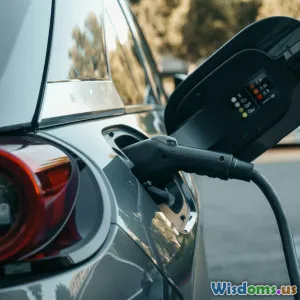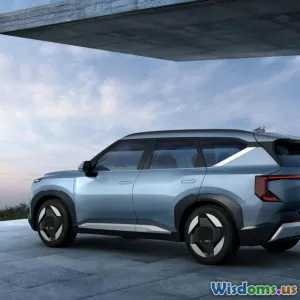
कैसे एआई भविष्य की कारों को आकार दे रहा है
(How AI is Shaping Future Cars)
5 मिनट पढ़ें ऑटोमोटिव तकनीक और ड्राइविंग के भविष्य पर एआई के परिवर्तनकारी प्रभाव का अन्वेषण करें। (0 समीक्षाएँ)
How AI is Shaping Future Cars
The automotive industry is undergoing a remarkable transformation, driven predominantly by advancements in Artificial Intelligence (AI). As we look toward the future, AI is not just a supporting technology; it is becoming a cornerstone of vehicle design, functionality, and user experience. From autonomous driving to smart assistants, let’s explore how AI is shaping the cars of tomorrow.
1. Autonomous Driving
One of the most significant contributions of AI to automobiles is the development of autonomous driving technology. Companies like Tesla, Waymo, and Ford are utilizing sophisticated AI algorithms to enable vehicles to navigate without human intervention. These systems rely on various sensors, cameras, and machine learning models to understand the surrounding environment, recognize obstacles, and make driving decisions.
Example: Tesla’s Autopilot feature uses AI to analyze vast amounts of data collected from its fleet. This data helps improve the driving algorithms, enabling features like lane changing, traffic-aware cruise control, and even self-parking.
2. Enhanced Vehicle Safety
AI is instrumental in improving vehicle safety through advanced safety systems. Technologies like Automatic Emergency Braking (AEB), Adaptive Cruise Control (ACC), and lane-keeping assistance utilize AI to monitor road conditions and react in real time to potential hazards. These systems not only reduce the likelihood of accidents but also enhance overall driving comfort.
Fact: According to the National Highway Traffic Safety Administration (NHTSA), vehicles equipped with AEB can reduce rear-end collisions by up to 40%.
3. Predictive Maintenance
Another innovative application of AI in the automotive sector is predictive maintenance. By analyzing data from vehicle sensors, AI can predict when components are likely to fail or require maintenance. This proactive approach helps drivers avoid unexpected breakdowns and costly repairs, ultimately enhancing vehicle longevity and reliability.
Example: Companies like BMW and Ford are implementing AI-driven analytics to monitor vehicle health and provide drivers with timely alerts about necessary maintenance or repairs.
4. Personalization and User Experience
AI is also transforming the way drivers interact with their vehicles. Intelligent systems can learn a driver’s preferences over time, adjusting settings like climate control, seat position, and entertainment options accordingly. Virtual assistants powered by AI, such as Amazon’s Alexa or Google Assistant, are becoming standard features in many new cars, allowing for voice-activated control over various functions.
Example: The Mercedes-Benz MBUX system leverages AI to learn driver habits and preferences, providing a personalized driving experience that enhances comfort and convenience.
5. Smart Traffic Management
AI applications extend beyond individual vehicles to encompass entire transportation systems. Smart traffic management systems utilize AI to optimize traffic flow, reduce congestion, and enhance urban mobility. By analyzing real-time traffic data, these systems can adjust traffic signals and inform drivers about optimal routes, thereby improving overall efficiency.
Fact: Cities implementing AI-driven traffic management solutions have reported reductions in congestion by up to 30%, leading to shorter travel times and lower emissions.
Conclusion
As we continue to integrate AI into our vehicles, the automotive landscape is set to change dramatically. From enhancing safety and efficiency to personalizing driver experiences, AI is revolutionizing how we think about transportation. The future of cars promises to be smarter, safer, and more connected than ever before, paving the way for a new era in mobility. As the automotive industry embraces these technological advancements, consumers can look forward to a driving experience that is not only innovative but also tailored to their individual needs.
Embracing AI technology will be crucial for automakers aiming to stay ahead in an increasingly competitive market. For consumers, understanding these advancements can translate into more informed choices when it comes to purchasing their next vehicle.
पोस्ट को रेट करें
उपयोगकर्ता समीक्षाएँ
लोकप्रिय पोस्ट
















